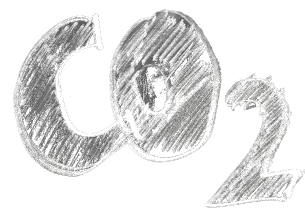Building Energy Audits
BECOME CARBON NEUTRAL
BECOME CARBON NEUTRAL
BUILDING ENERGY AUDITS
Building energy and operational audits are comprehensive assessments of the energy and operational performance of a building or group of buildings. They involve a detailed examination of various aspects of the building’s energy use, systems, and infrastructure to identify opportunities for improving energy efficiency, reducing energy consumption, and saving costs. Here’s an overview of what building energy audits typically entail:
Data Collection and Analysis: The audit begins with collecting data on the building’s energy consumption, including utility bills, energy meter readings, and operational schedules. This data is analyzed to understand patterns of energy use and identify areas of concern or inefficiency.
Building Inspection and Walkthrough: A physical inspection of the building is conducted to assess its structural characteristics, envelope (walls, windows, roof), insulation, lighting, HVAC (heating, ventilation, and air conditioning) systems, controls, and other energy-related equipment. This walkthrough helps auditors understand how the building operates and where energy may be wasted.
Energy Performance Analysis: Using specialized software and tools, auditors analyze the building’s energy performance, including energy consumption profiles, demand patterns, and energy use intensity (EUI). This analysis helps identify trends, anomalies, and potential areas for improvement.
Identification of Energy Conservation Measures (ECMs): Based on the findings from the data analysis and building inspection, auditors identify and prioritize energy conservation measures (ECMs) that could improve the building’s energy efficiency and reduce energy costs. These measures may include upgrading lighting systems, improving insulation, optimizing HVAC systems, installing energy-efficient equipment, implementing building automation and controls, and adopting renewable energy technologies.




SERVICES
MONITORING
Financial Analysis and Cost-Benefit Evaluation: Auditors conduct a financial analysis to estimate the costs associated with implementing each ECM, as well as the potential energy savings and return on investment (ROI) over time. This helps building owners and managers make informed decisions about which measures to prioritize based on their budget and expected payback period.
Report and Recommendations: The audit findings, along with recommended ECMs and their financial implications, are compiled into a comprehensive report. This report typically includes an executive summary, detailed analysis of energy use, ECM recommendations, cost estimates, ROI calculations, and implementation timelines. It may also include information on available incentives, rebates, and financing options to support energy efficiency improvements.
Implementation and Monitoring: Building owners can then decide to implement the recommended ECMs based on the audit findings and recommendations. After implementation, ongoing monitoring and performance tracking help ensure that the expected energy savings are realized and that the building continues to operate efficiently over time.
Building energy audits play a crucial role in helping building owners and managers identify opportunities for energy savings, reduce operating costs, enhance occupational capabilities and contribute to sustainability goals.
